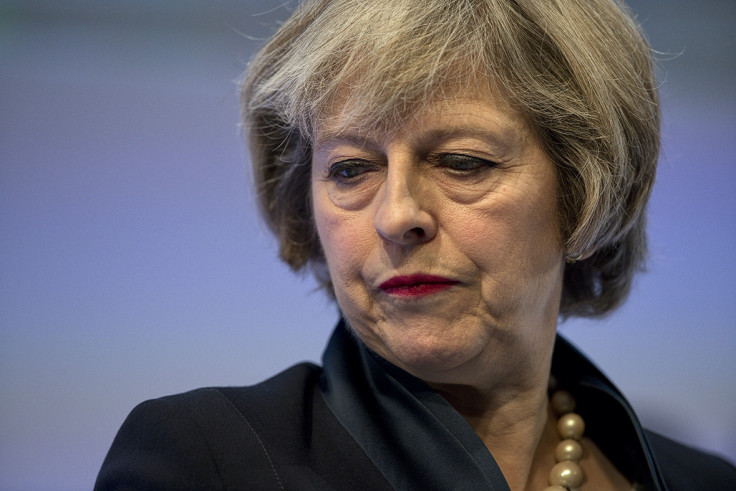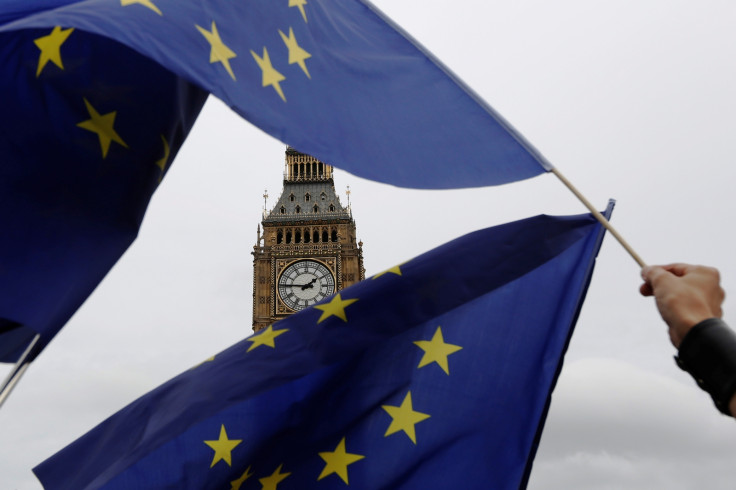Brussels doesn't hold all the cards - Brexit is a chance for the UK to trade with the world
By talking down our prospects, the pessimists encourage Brussels intransigence, and make a deal less likely.

Pull yourselves together, you wusses. It's a minor readjustment of our tariff arrangements we're talking about, not an epidemic or a foreign invasion or an asteroid strike. Not that anyone would guess it from the apocalyptic vocabulary you're using.
"A hard Brexit", says Keir Starmer for Labour, "would be catastrophic for our economy, living standards, jobs and future prosperity". Tim Farron, the Lib Dem leader, agrees it would be "economically disastrous". The CBI calls it "very negative".
Sound familiar? We became accustomed to such over-the-top language during the referendum campaign. The very act of voting Leave, we were told, would cause an immediate recession. Unemployment would surge and the stock exchange would collapse, destroying the value of our pensions.
In the event, of course, things worked out differently. Britain appears to have grown more strongly in the six months following the vote than in the six months before it, and finished 2016 as the world's most successful major economy. Unemployment, far from rising, has fallen consistently since the vote. British stocks are the best performing in Europe.
So, have the hard core of irreconcilable Remainers engaged in any self-analysis? Having got their short-term predictions so badly wrong, are they reassessing their long-term predictions? Not a bit of it. They are still issuing the same hysterical warnings, only now they apply them to the supposedly abominable prospect of a "hard Brexit" – by which they mean leaving the EU without any special deal.
Let me put my cards on the table. I'm what you might call a liberal Brexiteer. Throughout the referendum campaign I called for a Swiss-type arrangement, whereby Britain, having reasserted the primacy of national over EU law, would replicate many of its existing European arrangements through bilateral treaties. I still regard EFTA membership à la Suisse as the optimal outcome.
In my new book, What Next, I explain why pure EFTA membership is preferable to Norway-style membership of the European Economic Area. I propose some possible compromises on migration, such returning to the old system where you had to have a job offer before moving to another EU state, and had no automatic entitlement to benefits when you got there. I suggest keeping the ban on discrimination against the products of another member state, which is the true basis of the single market. I sketch out how to use Brexit to revive the stalled world trading system.
Britain, in short, should have the closest relationship with the EU compatible with legal sovereignty. But keep a sense of proportion, for heaven's sake. Failure to reach such a deal would not be the end of the world. Let's assume, for the sake of argument, an absolute worst-case scenario, in which WTO tariffs were applied reciprocally. It's worth stressing that no serious politician on either side of the Channel is proposing tariffs; but, just as an intellectual exercise, let's consider what such an outcome would mean.
According to a new study by Civitas, UK exports to the EU 27 would be subject to tariffs of around £5.2 billion. That is around half Britain's annual budget contributions which, during the campaign, Keir Starmer, Tim Farron and the CBI insisted were utterly trivial (and that's if we take the Remain campaign's lower estimate of our budget payments). We'd have more than enough money to compensate any affected sectors out of our budget savings – or, indeed, out of the £12.9 billion which the UK would now be collecting in tariffs on imports from the EU.
For the avoidance of doubt, I don't want us to be collecting tariffs from our EU neighbours. I want us to have an open economy, so that the cost of living falls and productivity rises. I'm simply illustrating how pathetic it is to complain that Brussels holds all the cards.
It's true that duties are not the whole story. There are various non-tariff barriers to trade, including the most basic one of all – customs checks. Again, though, we need to keep a sense of proportion. Norway, which exports more than twice as much per capita to the EU as we do, stands outside the customs union. So does Switzerland, which sells the EU nearly five times as much as us in proportionate terms.
This is not the nineteenth century, with customs checks carried out by moustachioed officials in epaulettes and peaked caps. There is an electronic trail for goods, allowing the "paperwork" to be carried out in advance online. As Shanker Singham from Legatum's trade commission points out, France carries out checks on merchandise in, on average, five minutes.
In any case, most of Britain's exports are in services. Because EU trade agreements with third countries are usually weighted toward Continental agrarian and industrial interests, British services tend to be overlooked. That can now change. Indeed, one of the chief advantages of leaving the EU's customs union is that we will be able to sign commercial accords with Australia, China, India, the United States and so on.
During the referendum, the Treasury's models bizarrely assumed that we'd keep all our existing EU tariffs against overseas states. Yet the president-elect has already indicated that he wants a swift trade deal with us. The United States is not just the world's largest economy; it is also the single biggest investor in Britain and the single biggest recipient of British investment.

My point is not that the transition will be smooth. No important change is ever entirely smooth. When you move from a dingy flat to a handsome new house, the move itself is still stressful. But this determination to see only costs and no opportunities is becoming tedious.
For example, Nick Clegg argues that leaving the EU will mean food tariffs of 22%, while his predecessor Paddy Ashdown argues that it will mean no food tariffs, and so will put British farmers out of business. Two diametrically opposed conclusions, united only by their determination to predict the worst possible outcome.
Many Brussels-based industry lobbyists seem trapped in the same gloomy mindset. Having spent years cosying up to EU rule-makers, they now find it hard to imagine their sectors functioning in any other way. The idea that we might interact directly with global regulatory bodies, in the way that Chile or South Korea do, is evidently beyond their mental horizons.
To repeat, I want a close and cordial relationship with our European allies. We should aim to be as Canada to the United States – a country with the strongest possible military, diplomatic and economic links to the federation on our doorstep. Ideally, we'd use Brexit to set a precedent, establishing a new status for any country that wanted to participate in the European market but not in a political union – from Iceland to Israel, from Morocco to Ukraine.
But we'd be mad to go into the talks with no bottom line. That's the position that poor Alexis Tsipras found himself in: begging for better terms without any fall-back position if he didn't get them. I'm afraid it's also what happened during David Cameron's renegotiation: because no one in Brussels believed that Britain would leave, no concessions were offered.
Some Eurocrats still think that Britain can be browbeaten into changing its mind – a view disgracefully encouraged by Tony Blair, Nick Clegg and the rest. Hence, for example, the European Commission's suggestion that Britain should be stuck with an exit bill of £50 billion before trade talks begin.
The paradox is that, by talking down our prospects, the pessimists encourage Brussels intransigence, and thus make a deal less likely. Only when the rest of the EU accepts that we leaving, that we will walk away with no agreement rather than overturn our referendum, and that no amount of bullying will change our minds, are constructive talks likely to get underway.
We should approach the Article 50 procedure by preparing for third-country status, but negotiating in good faith for something closer. If we go in as supplicants, that's how we'll be treated. But if we remember that we are the world's fifth largest economy, and the EU's largest export destination, there is every chance of a mutually beneficial outcome.
We should, in other words, seek a deal that is fair to both sides while being ready to walk away if the terms are not right. Which, I'm delighted to say, is precisely what Theresa May seems set to announce.
Daniel Hannan MEP is the author of "What Next: How to get the best from Brexit," published by Head of Zeus. Follow: @danieljhannan
© Copyright IBTimes 2025. All rights reserved.






















